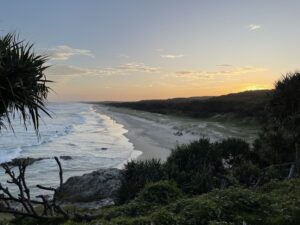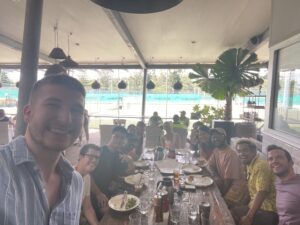Written by James Murphy
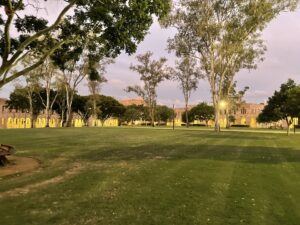
In October 2022 I had the opportunity to conduct an overseas institutional visit (OIV) at the University of Queensland, based in Brisbane, Australia. My placement lasted for 3 months and was based at the remote sensing research institute in the School of Environmental and Earth Sciences. I was able to use this placement as an opportunity to meet researchers working in my field, whilst conducting research relating to my thesis in an entirely new environment.
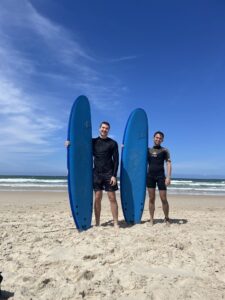
During the 3-month visit, I was able to conduct a good deal of analysis, utilising new data and learning new skills along the way. These skills included working with optical satellite data and understanding the benefits and limitations of this data; obtaining a good deal of knowledge about the geophysical makeup of coastal regions surrounding Brisbane; manipulating and harmonising spatial data of different types. Further benefits of the OIV included the opportunity to engage in lab meetings and other events hosted and promoted by the Remote Sensing Research Institute at the University of Queensland. This allowed me to get to know and network with various members of the lab and understand and even assist in their work. I personally found much of the work interesting and inspiring. It is hoped that I may collaborate, or at least meet up at conferences, with members of the institute in future. In addition to networking with members of the institute, I attended seminars and workshops run by the School of Earth and Environmental Sciences (SEES), where I was able to meet peers researching a variety of different topics.
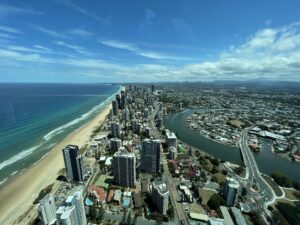
The OIV enabled me to conduct research on a project that I would otherwise not have the capacity to complete. Working with my host supervisor and other members of the institute was incredibly beneficial to my PhD, but also in understanding prospects for a future career. Being exposed to a variety of remote sensing methods and projects was inspiring. There are many aspects of remote sensing that lead to incredibly useful and exciting research, whilst also being a highly sought-after employable skill. Aside from the direct benefits of the visit, moving to Australia also developed my confidence and my independence, which will only be beneficial in any capacity going forward.
I would recommend the OIV scheme to anyone. At first, the idea of moving overseas into an institute where you don’t know anyone can be very daunting. However, I believe that the experience encourages you to put yourself out there and engage in opportunities that you otherwise wouldn’t. This will not only develop your network of collaborators and improve any skills you wish to learn, but you will meet people both in and outside the work environment that you may remain in contact with for a long time. I would especially recommend this experience for anyone who struggles to leave their comfort zone, or just wants a new perspective on their area of research. A new environment can be a breath of fresh air and provide a good deal of motivation towards researching for a PhD.
